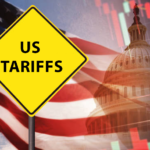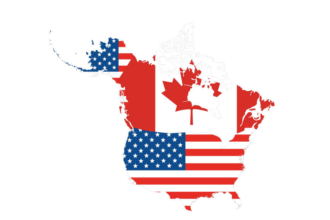Following carmaker Stellantis’ announcement that US tariffs would cause temporary closure of its assembly facility in the Canadian border city next week, Windsor, Ontario is rife with fear and dread. Workers in Windsor, the centre of Canada’s automotive industry, have been left with an unclear future by this action. Rising questions regarding the fate of local jobs and the economic well-being of the region—which has relied mostly on the automotive sector for decades—have resulted from US tariffs.
- How have US tariffs affected Canadian automotive workers?
- Canada's Reaction to the Tariffs?
- The political leaders' suggested solutions?
- The state of car manufacturing in North America: integrated?
- Which Other Nations Experience the Shutdowns?
- In what ways might the tariffs affect consumers?
- What difficulties will businesses have navigating these tariffs?
- Looking ahead, what hopes do Windsor's auto workers have?
Among the 4,500 workers at the Stellantis facility, Derek G. Jungle said that although the shutdown was “kind of expected,” he still finds himself concerned about what is next. “I’m still worried about the future,” G Jungle said, underlining the fear that has seized many employees.
Uncertainty has permeated Windsor, which lies directly across the US-Canada border from Michigan. Windsor and Michigan have collaborated over many years to create some of the most recognizable cars in North America. The two areas’ cooperation has made vehicles like the Ford F-150 a mainstay of the North American automotive market.
How have US tariffs affected Canadian automotive workers?
Set at 25% on all foreign-made” autos, the US tariffs have fundamentally rocked Windsor’s automotive industry. For vehicles built with more than 50% US-made components, the tariffs will be cut by half; however, many in the sector are worried about how this would affect their jobs and way of life. Long-time worker Christina of the Ford Windsor facility voiced her future worries. She declared, “It’s terrible.” “I worry that my plant will close exactly as Stellantis’ has.”
Christina, a 25-year veteran of the automotive sector, is particularly concerned about how the closures might impact her family. The financial weight of the tariffs aggravates Christina’s worry as a mother of four children, one of whom is in university. Fighting tears, she said, “I would like them to have a good life too.” Her emotional exhaustion stems from the uncertainty about her employment and the direction of the sector.
Canada's Reaction to the Tariffs?
Prime Minister Mark Carney has declared that Canada will levy tariffs on American-made vehicles in response to mounting concerns in Windsor and throughout the country. Though automobiles manufactured in line with the current North American Free Trade Agreement (NAFTA) between Canada, the US, and Mexico will see reduced taxes, Canada will apply a 25% tariff on vehicles imported from the US. More specifically, the tariff will only apply to the non-Canadian parts of the vehicle instead of the whole vehicle.
Unlike the US, Canada would not levy tariffs on car parts, a policy meant to help the Canadian auto industry be less impacted. Carney said, underlining Canada’s intention to defend its interests, “the government will be responding by matching the US approach.”
Carney also said that if manufacturers agree to keep manufacturing and iinvestingin Canada, Canada will negotiate with them to find means of exempting them from the taxes. This strategy is meant to inspire businesses to keep running in Canadadespite the tariffss, therefore protecting employment and the stability of the national economy.
The political leaders' suggested solutions?
Given the continuous trade conflict, leaders of Canada’s main political parties have been suggesting their remedies. Arguing that this would increase demand for vehicles made in Canada, conservative leader Pierre Poilievre demanded the federal levy on newly manufactured cars be eliminated. Making Canadian autos more reasonably priced, he thinks, will help Canada offset the US tariffs’ economic effect.
Leader of the New Democratic Party Jagmeet Singh suggested selling “victory bonds” to Canadians in order to generate money to strengthen Canada’s economy in view of the continuous trade battle with the US. These ties would provide a way to create income to help the automotive sector and other businesses suffering from the trade conflict.
Poilievre and Singh’s suggestions show a rising worry among Canadian lawmakers on the long-term financial implications of the US tariffs. Although there is no one-size-fits-all answer, it is abundantly evident that Canadian authorities are eager to discover means of safeguarding the enterprises and employment that are vital to the national economy.
The state of car manufacturing in North America: integrated?
The intricately linked North American automotive industry sees autos crossing US-Canada-Mexico borders several times during the manufacturing process. Many times, parts used in autos come from all three nations, hence it is challenging to determine how the US tariffs affect one specific country.
For instance, some Ford F-150 trucks are built using Mexican electrical components and engines manufactured in Canada. Then, these vehicles are assembled in Michigan or Missouri. This intricate, cross-border system of production draws attention to the difficulties of imposing taxes on vehicles and auto components in a sector mostly dependent on worldwide cooperation.
Consequently, the tariffs have probably far-reaching effects not just for Canada and the US but also for Mexico, where numerous automobile components are produced and imported to the US for assembly. The US tariffs are expected to have knock-on consequences felt across the car manufacturing supply chain of North America.
Which Other Nations Experience the Shutdowns?
The closures in Windsor are not one-off incidents. To handle the effects of the US tariffs, Stellantis also stopped manufacturing at its Toluca, Mexico, factory for one month and let 900 employees be laid off in the US. Workers in all three nations engaged in the automotive sector are affected by these closures and layoffs.
Stakes for Canada are especially great. With about 93% of its produced cars sent to the US market, the nation exports almost 1.6 million vehicles annually. Moreover, the 25% US tax applies to the parts Canada produces for automobiles manufactured south of the border, therefore affecting the Canadian automotive industry twice.
In what ways might the tariffs affect consumers?
Rising car prices are most likely the result of the US tariffs. Former Ontario Ministry of Finance assistant deputy minister Mahmood Nanji claims the tariffs could increase the cost of a Chevrolet Silverado by almost $8,000 (£6,110). “Dealers will find it difficult to sell those vehicles, thus, demand may very well slow down,” Nanji said.
Onn Canada and the US, consumers as well as auto dealers may find great influence on the growing cost of vehicles. Higher pricing could cause people to be less ready to buy new cars, thus slowing down the automobile sector. For automakers, who depend on robust demand to keep profitability, this could be especially difficult.
What difficulties will businesses have navigating these tariffs?
Tariffs are likely to provide major administrative difficulties for businesses engaged in the integrated auto industry of North America. Businesses and border security agents will have to find out how to apply the levies, which could include difficult documentation and logistical challenges.
when Nanji said, when businesses negotiate the complexity of the US tariffs, this might become a “administrative nightmare”. The North American auto sector is linked, hence the tariffs will not only impact completed cars but also a broad spectrum of automotive parts, thereby exacerbating the matter.
Looking ahead, what hopes do Windsor's auto workers have?
Though Windsor’s auto workers are engulfed in uncertainty and anxiety, many still believe that things will work out. Another Windsor auto worker, Chad Lawton, expressed his hope that the US tariffs would be temporary and that both the US and Canada could come to an understanding to avoid widespread layoffs. “We hope they can negotiate a deal, so we don’t [sic] situation that will result in mass layoffs,” Lawton added.
Lawton underlined at the same time the need for Canadato defendg itself against the tariffs. Emphasizing the significance of Canada safeguarding its people and businesses, he said, “We cannot just concede and roll over and allow it to happen.”
Windsor’s auto workers hang onto the faith that their government and business leaders can negotiate a fair settlement that guarantees their jobs and the stability of the Canadian auto sector even as they confront an unknown future.








